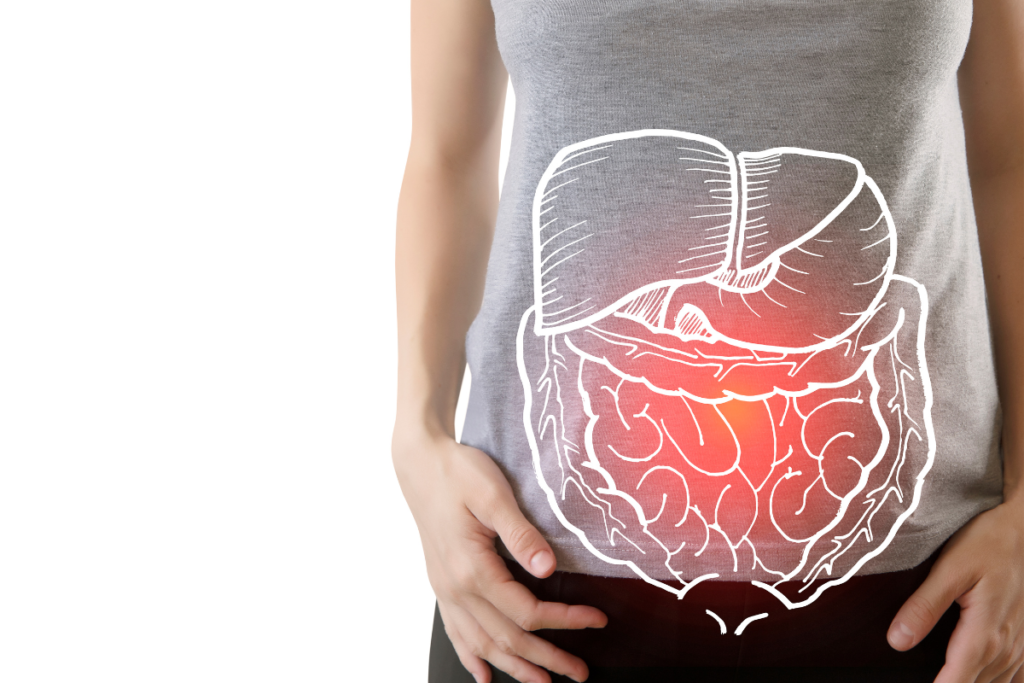Inflammatory bowel disease (IBD) is a condition that causes chronic inflammation and ulceration in the digestive tract. There are two forms of IBD, including Crohn’s disease (CD) and ulcerative colitis (UC). These conditions are painful, debilitating, and incurable diseases that attack the digestive system. Crohn’s disease can present with inflammation anywhere along the digestive tract from mouth to bottom while ulcerative colitis causes inflammation in the large intestine (colon) and/or rectum. When CD and UC cannot be teased out, the diagnosis is considered to be indeterminate colitis. Symptoms of IBD may include abdominal pain, bloody diarrhea, rectal pain and bleeding, fever, and weight loss.
As of 2020, IBD affects more than three million Americans and approximately 10 million worldwide. IBD can present at any age but often afflicts young patients aged 15 to 35, with the incidence growing in children of various races and ethnicities.

The effects of IBD
IBD is not just a bathroom disease. In fact, there are many extraintestinal manifestations that come alongside the condition, including but not limited to, skin issues, joint-related disease and pain, eye inflammation, kidney stones, and liver issues among many others. IBD can also come with other diagnoses; some common ones include rheumatoid arthritis, ankylosing spondylitis, liver, kidney, and gallbladder issues in addition to asthma, migraines, and depression, and anxiety.
When left untreated or not sufficiently treated, complications may occur. In UC, toxic megacolon can lead to immediate hospitalization and removal of the colon (colectomy surgery). In CD, with uncontrolled inflammation, the intestine can narrow resulting in strictures and the intestine can also burrow holes and tracts into other organs and the skin, known as a fistula (if one) or fistulae (if multiple). In both CD and UC, if there is untreated/undertreated inflammation in the colon and rectum for 8-10+ years, patients are at risk of developing colorectal cancer (CRC). There is also a risk of small bowel cancer in patients with CD.
How do we treat IBD?
There are some differences in medications used to treat UC versus CD but overall the concept of treatment is similar. In UC, 5-ASA medications may be a first-line option whereas for CD, it is often recommended to move to immunosuppressive agents and/or biological therapies in early stages to prevent complications and surgery. There is also a role for dietary therapies and mental health counseling for patients living with IBD and their families/caregivers. Some major IBD centers will offer a dietitian and mental health practitioner to help improve outcomes for patients with well-rounded and personalized care for their IBD.
If medications do not work and/or if complications develop, patients are often referred to surgery. There are different options for surgery for those living with UC versus CD. Refractory UC can lead to a 2- or 3- step surgery, which removes the colon along with most of the rectum and fashions a j-shaped pouch of the small intestine to create an internal reservoir to hold stool. Refractory CD may involve colectomy surgery, resection of the bowel, fistula drainage/repair, and/or strictureplasty depending on the severity, location, and penetration of the disease. With CD, internal pouches are not common because CD can recur in the pouch; hence, external pouches called ostomies are used as a mainstay in CD surgery.
While UC and CD are progressive conditions that may worsen without treatment, in many cases, IBD can be effectively treated with the current arsenal of medications and surgeries available. Timely care is of utmost importance in preventing poor outcomes.
Getting Support for Living with IBD
IBDLyfe has emerged in order to provide support to patients and/or caregivers. To help them navigate their conditions in a way that reduces stress and anxiety to help improve outcomes. Join us today!
**It is always important to speak to your physician about medical advice and to your dietitian regarding dietary therapies available. If you are having thoughts of harming yourself and/or experiencing suicidal ideation, please discuss with a mental health counselor immediately.**
